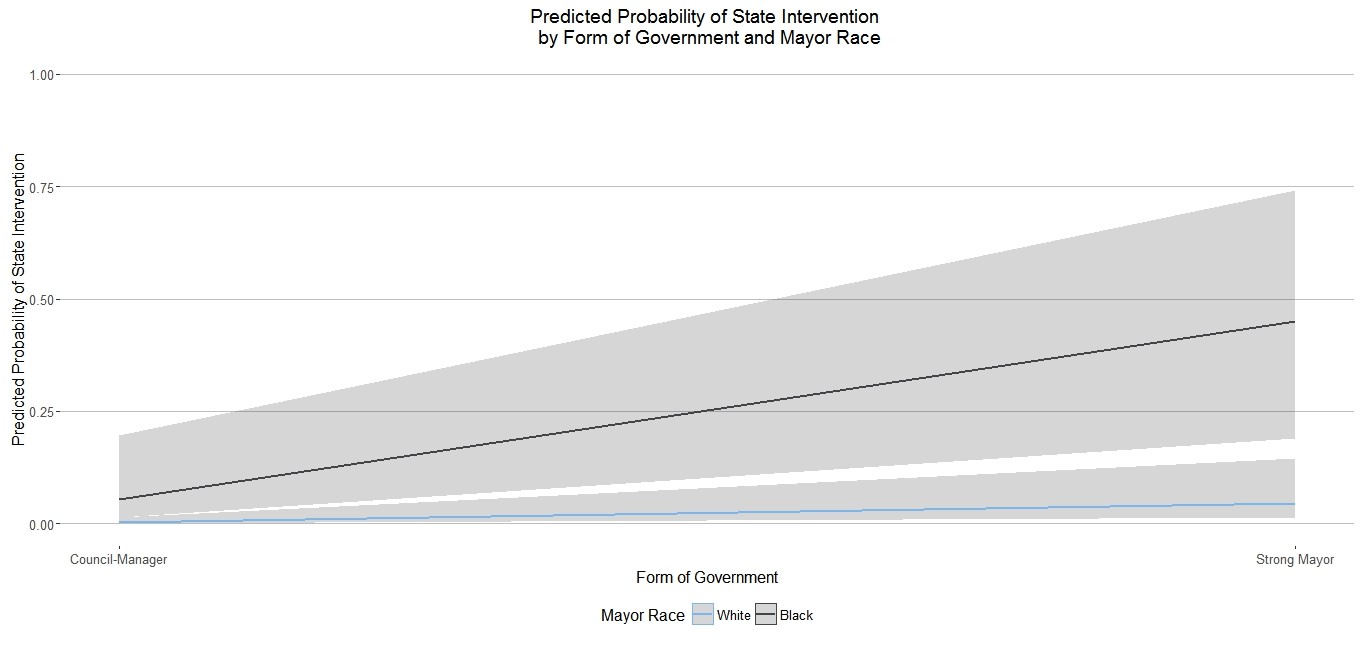
Abstract
We examine the patterns of state intervention in city government to determine whether states are more likely to intervene in cities with Black mayors and find that Michigan is more likely to take over cities with strong mayors, particularly if those mayors are Black. While there is debate as to the utility of state financial intervention at the local level, there has been little analysis of the influence of financial intervention practices on city governance and the equity of its use. Because Black officeholders are more likely to emerge at the local and state level, there is an opportunity to study the perceived effectiveness of Black city level executives, especially when states opt to intervene in local level affairs. Are cities taken over by states in greater financial distress, plagued by more corruption or more politically or racially distinct from the state than other cities? We address these questions using original data collected on states with policies for city intervention and data on local-level executives, accompanied by financial data from the Census of Governments. Our results point to the importance of considering the state-level policy context, local institutional structure and economy, and the relative racial and political position of cities in understanding why cities fall into fiscal distress and states intervene.